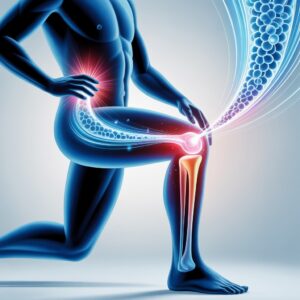So if you’re thinking about doing stem cell therapy there’s one question almost every patient asks me when they plop down in my office chair: “Dr. Cherdack, should I use my own stem cells or those donor cells from umbilical cords?”
It’s a great question – and honestly, the answer isn’t as simple as some clinics might have you believe. Let me break it down for you in plain English, no fancy medical jargon required.
Your Own Cells vs. Donor Cells: What’s the Big Deal?
Think of stem cells like home renovation contractors. Would you rather hire someone who already knows your house inside and out, or bring in an outside team that’s super talented but has never seen your place before?
Most of the time, I recommend using your own stem cells (we call this “autologous” treatment in doctor-speak). Why? Because your body instantly recognizes these cells as “the home team.” There’s no adjustment period, no confusion about where the bathroom is, they just get right to work!
“I was skeptical at first,” says Mike, a 52-year-old construction worker who came to me with a bum knee. “Using my own cells seemed too simple. But six months later, I’m back on jobsites without even thinking about my knee. It just works again.”
When we use your own stem cells, we typically get them from two places:
- Your bone marrow (usually from your hip area)
- Your fat tissue (often from your belly – hey, at least that tummy pooch is good for something!)
These cells are fantastic for fixing all sorts of orthopedic problems like:
- Creaky, painful joints from arthritis
- Torn muscles that just won’t heal right
- Ligaments that got stretched or snapped
- Those pesky disc problems in your back
When Donor Cells Might Be Your Better Bet
Now, this might surprise you – sometimes I actually recommend NOT using your own cells. For certain conditions, especially those whole-body “systemic” diseases, umbilical cord stem cells might be the better choice.
These donor cells really shine when we’re treating things like:
- Multiple sclerosis
- Parkinson’s disease
- Other complicated neurological conditions
Why? These umbilical cord stem cells are like the enthusiastic new college grads of the stem cell world – young, energetic, and ready to tackle big problems. They haven’t been exposed to decades of wear and tear, pollution, stress, or that questionable diet you had in your 20s (don’t worry, we all did!).
The Age Factor: Why It Matters More Than You Think
Here’s something most clinics won’t tell you straight up: your stem cells age right along with you. Sorry to break it to ya!
When you’re young, your stem cells are like eager beavers – they repair stuff quickly and efficiently. But as we get older… well, they get a little lazy. They don’t communicate as well, they move slower, and they just aren’t as powerful as they used to be.
“I always thought cells were just cells,” says Janet, a 68-year-old patient who came to me for hip pain. “But Dr. Joel explained that my cells had been through six decades of life just like the rest of me. Made sense why we might want some fresh reinforcements!”
As a general rule of thumb:
- Under 60 years old and pretty healthy? Your own cells will likely work great.
- Over 60 or dealing with chronic health issues? We might wanna consider umbilical cord cells or a mix of both.
But here’s the thing – its not just about the number of candles on your birthday cake. I’ve treated super-fit 70-year-olds whose cells looked better than some 50-year-olds who’ve been rough on their bodies!
It’s Not One-Size-Fits-All (Despite What Some Clinics Say)
The truth is, this decision is way more nuanced than most people realize. It’s not just “young people get this, old people get that.” It’s about your whole health picture.
For instance:
- A 72-year-old marathon runner might have stellar stem cells
- A 45-year-old with diabetes, high blood pressure, and a smoking habit might benefit more from donor cells
- Someone with a complex condition might actually do best with a combo approach
I remember treating identical twins – both 58 years old with similar knee problems. One had been a health nut his whole life, the other… not so much. We used the health nut’s own cells, but for his brother, we went with umbilical cord cells. Both got great results, but they needed different approaches.
Let’s Figure Out What’s Right for YOU
Here’s my promise: I won’t push you toward one type of treatment just because it’s what we always do or because it’s more profitable (yeah, some clinics do that).
Instead, we’ll look at:
- Your age and overall health
- The specific condition we’re treating
- Your medical history
- Your goals for treatment
- Even your budget (lets be real, that matters too)
Then together, we’ll decide whether your own cells, donor cells, or a mix of both gives you the best shot at the results you want.
Every body is different, and cookie-cutter approaches just don’t cut it when it comes to something as sophisticated as stem cell therapy.
Ready to find out which approach might work best for your specific situation? Let’s talk! You can reach me at (720) 236-6960 or through my website to schedule a consultation.
Your body is unique – shouldn’t your treatment be too?


 Getting Your Life Back: How Stem Cells Could Fix Your Aching Back
Getting Your Life Back: How Stem Cells Could Fix Your Aching Back